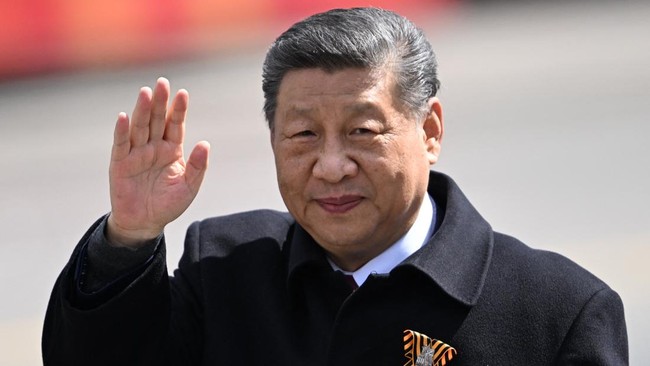
Jakarta, cartitleloans Indonesia
–
Chinese President’s visit
Xi Jinping
to
Tibet
Last August in commemoration of the establishment of the Tibetan Autonomous Region (TAR) draw criticism from the Tibetan community throughout the world.
They rejected Beijing’s claim that Tibetan was part of China, and assessed that the visit would reflect the insecurity and lack of confidence of the Chinese government, although the official media tried to describe it as a symbol of stability and progress.
In his speech quoted by the Chinese media, Xi stressed that “to regulate, stabilize, and develop Tibet, the main thing is to maintain political, social, ethnic unity, and religious harmony. Managing Tibetan affairs must always hold on to party leadership.”
Meanwhile, senior Chinese Communist Party (PKC) official Wang Huning said Tibet experienced a “best development period” under the leadership of Xi, although he condemned the effort he said wanted to separate Tibet from mainland China.
XI also encouraged Tibetan Buddhism to be adjusted to the Chinese socialism system and asked local officials to encourage Tibetan people to use standard Mandarin.The policy was rejected by the Tibetan community.
Strict supervision of the authorities
“Xi Jinping’s visit should respect the rights of the Tibetan people, not to show Chinese repressive control,” said Tenzin Lekshey, a spokesman for the Central Tibet Administration (CTA).
Since the Chinese invasion in 1951, Tibet has experienced a systematic campaign of Sinization, including restrictions on religious and cultural practices, as well as political oppression to strengthen Beijing’s power.Ahead of the celebration in the capital city of Lhasa, the International Campaign for Tibet (ICT) advocacy group reported an increase in security, detention and blockade examinations.
“The celebration regulated by this country takes place under the strict supervision of the authorities, for the sake of imitating stability and harmony,” ICT wrote.
Namgyal Choedup, a representative of the Tibetan office in Washington, said Tibet “is basically an area that is probably the most supervised throughout China.”He considered the 60 -year TAR celebration in Lhasa only confirmed the weak legitimacy of Beijing, both historically and popularity.
According to ICT President Tencho Gyatso, the celebration actually showed Beijing’s insecurity, because the official schedule of the celebration was announced 12 hours earlier.”The large delegation sent to Tibet to celebrate the form of tar is a sign of in -depth anxiety, not strength,” he said.
Harmony illusion
The Tibetan Diaspora community reiterates the rejection of China’s claims over their territory.Media Diaspora Phayul writes that the celebration is carried out amidst access to journalists and diplomats, as an attempt by Beijing to display full control while the Tibetan people continue to demand freedom, true autonomy, and the return of the old Dalai.
Robert Barnett, a researcher at the School of Oriental and African Studies, London, assessed that Xi’s second visit to Tibet in the last five years reflected “Fear that the Tibetan people remain unloyal even though decades have been under Chinese rule.”According to him, the efforts of religion and mass political education were born from that fear.
ICT concluded that Xi’s visit only displayed a striking contrast: Beijing’s version of the stability narrative faced with a hard repression that was lived by the people of Tibetan.
“Massive supervision and the mobilization of the security forces on a large scale confirmed China’s determination to maintain the illusion of harmony while silencing the difference in votes,” wrote the ICT report.
(DNA)
Read More: Calvin Verdonk’s words after officially joining Lille
Read More: Alex want to be a manufacturer racer, will you slide Bagnaia?